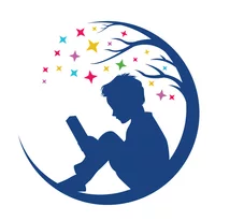Frequently Asked Questions
General Questions
The Purpose of this Website
Why is it so important for pre-teens to learn coping skills?
What does “brain-based coping skills” really mean?
Are pre-teens mature enough to learn and use brain-based coping tools?
How can students practice so they get better at using these skills?
Questions from Parents & Educators
How can teachers use this project in their classroom?
How can parents help their pre-teens learn healthy coping skills?
How do you evaluate the extent to which students benefit from this learning project?
What”s the difference between character education, coping skills & brain works education?
Specific Topics
Bullies, Aggression & Belonging
Why do bullies know how to hurt other kid”s feelings?
What parts of our Coping Brain make us want to join groups or gangs?
Do bullies” brains work differently than other kids?
Boys & Girls Brain Differences
In what ways do boys” and girls” brains work differently?
Why do girls” brains react differently to stress or upsets than boys?
Brain Development
At what age is most of our brain fully developed?
Are girls or boys” brains smarter?
Brain Stress & Learning
Why is it harder to learn or remember something when we”re upset and stressed?
What parts of our brain are affected when we get angry a lot?
When we”re stressed, why is it sometimes hard to sleep?
Do boys or girls have the most trouble getting over sadness?
General Questions
The Purpose of this Website
Why is it so important for pre-teens to learn coping skills?
The transition into middle school and teenage years represents a challenging array of brain and emotional changes that amplify (increase the effects of) normal stressful or upsetting experiences. Few students have an opportunity to learn about their coping brain and effective skills to deal with common, but difficult experiences. Prior to demonstrating this project in classrooms we conducted surveys with over 700 4th, 5th and 6th graders. (See “What they Say” feature of this website.) We ask students to evaluate their current coping capability for dealing with everyday emotionally wounding experiences. About half of pre-teens say they are already experiencing difficulty getting over anger and sadness emerging from difficult situations in their young life. Students who are prepared for dealing with coping challenges in early adolescence are more confident of dealing with these upsetting experiences during their early teenage years.
What does “brain-based coping skills” really mean?
We know that coping skills are something learned. We also need to realize that some of our coping responses to upsets or stress are “instinctive” or automatic. When kids learn to use higher thinking brain coping skills they are better able to regulate the more primitive brain impulses that tend to take over when we feel threatened or in distress. Instinctive coping impulses are operating when we are born. But as our brain matures during pre-teen years the thinking brain has developed nearly to adult level, which means more ability to regulate instinctive impulses younger children use in coping with stress. The Brain Works Project emphasizes that only by understanding functions of our thinking and two “instinctive” coping brains can we learn to better manage protective “survival” responses that often add to our distress, rather than reduce it. (Read more about how our three coping brain functions – reptilian, emotional and thinking – interact by “seeing them” as parts of our coping Brain Team.)
Are pre-teens mature enough to learn and use brain-based coping tools?
We now know that the human brain is nearly fully developed by age 12. After five years of demonstrating brain-based coping skills in classrooms of 4th, 5th and 6th graders we know at that age students” cognitive enable them to understand and begin using brain-based healthy coping skills. Pre-teens are at an age when they are curious to learn more about themselves, so brain function education is a natural and interesting subject. Pre-teens participating in this project have just a few years to prepare themselves to safely navigate the tumultuous early teenage years.
How can students practice so they get better at using these skills?
Brain-based coping skills offer students practical tools they can immediately put to use. Like any skill, there is no substitute for practice and experience using healthy and safe coping methods. Students are encouraged to begin applying these tools in everyday life situations – in their home, at play and school. To encourage pre-teens to learn how to use these skills this website offers a variety of suggested activities, quiz questions, games and projects students may do alone or in a group. Coping skills and brain function education is an interactive, experiential learning project. Students are encouraged to ask questions about any part of this website by clicking the response tab: “Your ?”s & Comments“. It is also helpful for parents and teachers to reinforce these “lessons” by having coping skills practice and discussions at home and school. Adults will discover there are almost daily “teachable moments” that offer opportunities to help their students apply healthy coping skills and brain function tools to manage real life problems.
Questions from Parents & Educators
How can teachers use this project in their classroom?
The Resources & Activities section of this website contains specific suggestions to teachers in the form of projects suitable for individual students or group participation. It is easy to refer students to appropriate, interactive learning elements on this website. Among our many resources, this website includes some on-line resources for helping kids to learn about the brain and its functions through other Internet websites.
How can parents help their pre-teens learn healthy coping skills?
Not only do pre-teens need help preparing for their teenage years, so do their parents. We suggest parents request the tutorial, “Being a Coping Coach” by submitting a request using the “Your ? s & Comments” main menu form. Parents may work with their pre-teens on quizzes, activities and exercises included on this website in the Resources & Activities section.
How do you evaluate the extent to which students benefit from this learning project?
We have tabulated results from over 700 students in 4th, 5th and 6th grades who evaluated their own coping confidence both before and after being introduced to the coping skills and brain works project. A pre-project self-evaluation shows student coping capability by using “emotional resilience & self-acceptance” measurements. Immediately following their classroom project, students completed self-assessments of these same coping capabilities. Over half of all students during five years of classroom demonstrations report significant gains in coping confidence and liking themselves more after just two to three hours of classroom time. Read what Pre-Teens say.
What”s the difference between character education, coping skills & brain works education?
Character education focuses upon a set of positive qualities we encourage students to develop at an early age. Many of these qualities (honesty, personal responsibility, respect for others, etc.) are used and modeled for students. Coping skills and brain function education focuses on helping students to become more self-disciplined and self-managed. In this sense it is a way of helping students to take responsibility for their feelings as well as their behavior. Coping with emotional upsets is one of the most difficult challenges during teenage years, for which pre-teens need to learn a set of skills and tools to reduce stress and avoid harmful behavior against themselves and others.
Specific Topic Questions
Bullies, Aggression & Belonging
Why do bullies know how to hurt other kid”s feelings?
By their pre-teens, most students have had to deal with the taunting, name-calling and social rejection, which are major sources of distress. After learning coping skills and how our coping brain works, we can begin to understand “What makes bullies want to hurt others?” Suffering emotional wounds from peers is among the greatest fears of students. The National Education Association estimates that over 160,000 students avoid going to school each day because they are afraid of suffering abusive behavior by peers. Using the theory and principles of coping brain functions, we can see that bullies” tend to punish their peers (or even younger kids) because bullies know how horrible it feels when they can”t deal with their own painful experiences. Bullies carry a deep-seated need for “revenge” against often less self-assertive students since bullies have difficulty coping with their own hurt feelings and pain, which they fear is a sign of weakness. They want to prove they are really powerful and do this by dominating or humiliating weaker students.
What parts of our Coping Brain make us aggressive or want to join groups or gangs?
Among the most common reptilian brain characteristics is the protective need for displaying aggression and joining with others to achieve a sense of strength and identity. Cliques are a major feature among social groups of pre-teens and teenagers. It is the reptilian coping brain that attempts to create a sense of security by joining exclusive groups which provide a sense of belonging particularly during the emotionally insecure teenage years. One result is teenage gangs, characterized by a primitive instinct to protect our group s territory, using threats, prejudice and violence to intimidate and dominate rival gangs. Adolescent brain and hormone changes add fuel to the basic need for our security by creating a deeper need to belong and feel we are safe from the threats of others – even if it is achieved by participating in gang aggression with a group of youth who feel they are outcasts or misfits.
Do bullies” brains work differently than other kids?
There”s a saying that: “Hurt people hurt people.” Studies of those who commit school shootings suggest a common characteristic of indiscriminate abuse or violence against innocent students that stems from primitive brain protective impulses to seek “revenge” when one feels “hurt” or “wounded.” The sense of being entitled to harm others, held by both the school shooter or school bully, comes from the instinctive reptilian brain survival function. These students are often found to be victims of bullies or abusive adults. Their way of “coping” with their emotional wounds is to get even by wounding others. Rather than use thinking brain coping skills, the bully allows their instinctive brain coping response to take control of their behavior. That is why bullies have difficulty expressing any positive feelings. Bullies need to feel powerful by taking advantage of the weak or innocent. For they also felt weak when they were emotionally “wounded,” abused or humiliated.
Boys & Girls Brain Differences
In what ways do boys” and girls” brains work differently?
There are some brain structure differences between males and females that suggest each gender (sex) has distinctive coping patterns. For example, we now know that our gender can be seen in the structure of our brain even before we are born, starting about the sixth month of pregnancy. During early adolescence a girl”s brain structure develops slightly earlier than a boys. Girls brain connections are more highly developed between the thinking (neocortex) and mammalian or limbic characteristics is the protective coping areas that regulate emotions. There is evidence that boys have more highly developed connections between their thinking and reptilian coping brain which is the seat of aggression and violent behavior.
Why do girls” brains react differently to stress or upsets than boys?
In addition to brain structure differences (see above question), male and female hormones differ in their affect on our coping brain functions. While girls are more sensitive and able to recognize and express feelings due to female hormones that sensitize their emotional coping brain, this natural ability is more difficult for boys to acquire. On one hand more females, and young girls, tend to have more periods of sadness than boys. However, with higher emotional brain sensitivity they are also equipped with a natural ability to understand and explain their emotional upsets and stress. Both male hormones and brain connections of boys” tend to activate reptilian coping brain responses. This can lead to more aggressive behavior since boys cope more often by physically acting out their stress against others. Of course, girls can be aggressive too. But since their emotional and thinking coping brains are more connected than boys, they are more likely to talk about upsetting feelings to reduce stress. Both male and female instinctive ways of dealing with stress can be regulated by learning to use our powerful thinking and understanding brain, the neocortex . A major reason pre-teens need to learn healthy coping methods is that during adolescence both male and female distress is harder to deal with due to their gender-specific release of hormones affecting brain functions.

Brain Development
At what age is most of our brain fully developed?
Recent research reveals that by age 11 or 12, the human brain is developed in most every way with one notable exception. The “control center” for behavior and judgment, which is located within the neocortex, is the pre-frontal cortexthe control center for planning and directing our behavior . This brain area will require another decade or more to mature during our mid-20 s. This means that our ability to regulate brain coping functions has not fully developed even during the teenage years. Achieving adult judgment and coping ability needs many more years of brain cell development before we can use our full ability to control behavior when we are upset or stressed. Of course, some adults who never learned coping skills when they were younger, may continue to have behavior control difficulties throughout their lives.
Are girls or boys” brains smarter?
Girls may be better students and learn more easily than boys during the pre-teen years, but that difference is more likely to be due to the slight advantage of girls” earlier brain development by a year or so over boys. However, researches have found that humans have different kinds of intelligence. Some of us are more emotionally intelligent. But others may be naturally better at learning music or math. Some have better spatial skills like drawing and designing. Language skills are a major advantage of the human brain s amazing ability to learn and regulate behavior. This is why coping skills education emphasizes and develops the neocortex ability to use words to describe and manage our instinctive means a coping ability we are born with that acts automatically emotional and reptilian coping brains responses.
Why is it harder to learn or remember something when we”re upset and stressed?
Coping skills are not only a healthy way of getting over our upsets and stress. They can also help us to learn more easily. Scientists conduct research on this subject both on animals such as rats as well using functional brain imaging of human brains showing activity within our brain. Among the latest discoveries in brain and learning research is evidence showing that stress hormones released in our blood stream and body also affect our brain. One effect of stress over long periods of time is the shrinking and destruction of a key part of our brain”s deepest memory center, the hippocampus. The longer a person remains under stress the more our memory is impaired. You can study this effect by observing how difficult it is to pay attention when trying to learn and remember something new during a time when you are having difficulty dealing with a very upsetting experience. In the future new brain imaging research may be able to show how using healthy coping skills helps our brain to increase attention, memory and learning.
What parts of our brain are affected when we often get angry?
Anger is a primitive reptilian brain survival function originally designed to frighten off those animals (or people) who threaten us or make us afraid for our lives. Getting angry, though an instinctive behavior, can be regulated by learning to use higher control patterns based in our thinking brain neocortex. Anger is a powerful, natural response when we feel threatened. So it is important that we make a distinction between whether our life is at risk, or just that our feelings that are hurt. It is the neocortex thinking brain that needs to control the desire to attack or hide which is why they are called instinctive reptilian responses. Some people attack others when they are angry, frustrated or upset. Others may turn on themselves with acts of self-harmful acts. Yet another response is to hide one”s emotional pain and distress by trying to disconnect from emotional brain. This is one reason humans want to numb painful feelings with alcohol or other drugs. For all these reasons, without being able to control our brain coping functions, anger can keep us in distress for long periods while we struggle with a sense of helplessness or withdraw from other people for our self protection. This type of withdrawal, when we can t get over our anger and sadness locked inside, is called “depression.”
When we”re stressed, why is it sometimes hard to sleep?
Since the first job of our brain is to keep us alive, all forms of stress – whether physical or emotional – send distress signals to many parts of our coping brain. These distress signals affect reptilian, emotional and neocortex function they are powerful impulses — the brain”s version of a fire or ambulance siren. These warnings are difficult for our brain to ignore, even when we are trying to sleep. We may think that a stressful experience didn”t upset us when we were awake, but when we relax to sleep brain functions still operate to keep us “on alert.” Many of youth nightmares are the brain s way of replaying the stress and worry we had during the day. At the same time our “figuring out” thinking brain is struggling to think of a way to deal with a distressing situation. The result, during all this turmoil, is difficulty getting a good night”s sleep. Learning to use healthy and effective coping skills during the daytime may give us more confidence so our brain can relax and rest at night .
Do boys or girls have the most trouble getting over sadness?
Scientific studies show that females are much more likely to have difficulty getting over periods of sadness than males. However, young boys and girls often have more problems coping with sadness than getting over anger. We know that the female brain contains a rich connection between emotional and thinking brain functions. However both young and adult females tend to be particularly sensitive to stress and upsetting experiences. This is why more teenage and adult females tend to experience sadness following an upsetting experience. We also know that females are more likely to cry than boys or men. Crying is a basic way our emotional coping brain expresses distress. Crying and talking about sadness with others is often a key to “getting in touch” and dealing with our feelings and emotions. Most males are less likely to cry when sad mainly because our society associates sadness with weakness. While men seem to be less troubled by sadness, in our coping skills and brain works classroom projects both pre-teen boys and girls generally report greater difficulty dealing with this emotion. Girls and adult women are more likely to be diagnosed with depression. This may be because they are more likely to show their feelings of sadness more often than males. In classroom projects, the anonymous surveys of pre-teens show that both pre-teen boys and girls have more difficulty getting over sadness than coping with anger.





